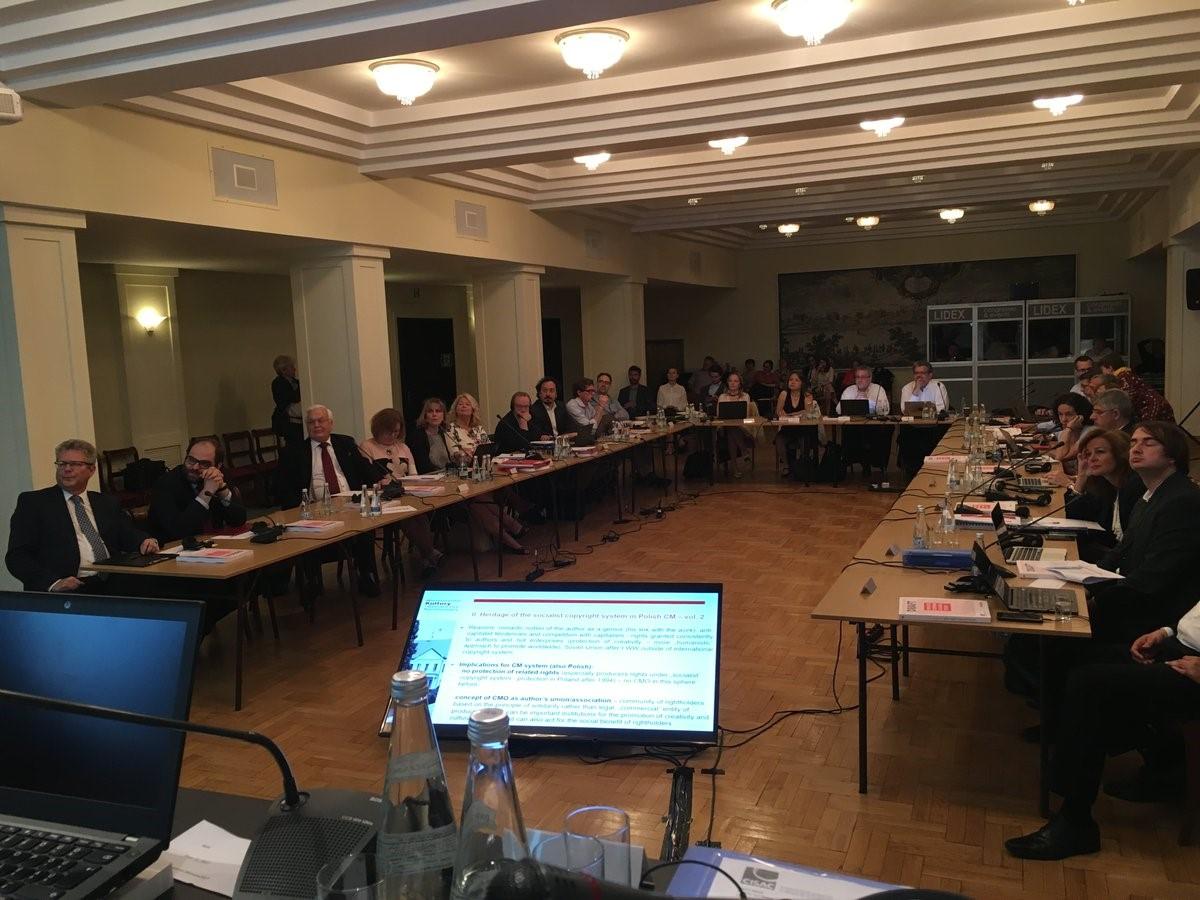Government representatives in attendance at annual Legal Committee meeting in Warsaw

Government representatives from the Polish Ministry of Culture and legal experts from around the world convened in Warsaw, Poland on 27-28 June for the annual Legal Committee (CJL) meeting. The forum was hosted by the Polish Society of Authors and Composers, ZAiKS. The event brings together the committee in charge of providing expertise on authors' rights/copyright issues for member societies. The CJL serves as a forum for CISAC member societies to share information and developments as well as legislative updates on copyright and collective management.
The hosting society ZAiKS’s General Manager Krzysztof Lewandowski provided the welcoming speech, which saw the election of SUISA Deputy Director General Vincent Salvadé as the new CJL Vice Chair, replacing LIRA Legal Counsel Marije Van Der Jagt.
In a welcome address, Poland’s Ministry of Culture and National Heritage Under-secretary of State Paweł Lewandowski underlined the important role collective management organisations (CMOs) play in facilitating access to culture and creativity. He also welcomed the initiative of the Legal Committee to gather experts to enable real discussions. ‘‘We all believe that the collective management of copyright and related rights places a fundamental role in strengthening creativity. Facilitating regular access to culture without the possibility for rights holders to entrust the management of their right to professional entities would mean efficient mass licensing to users would not be possible.’’
The Under-secretary of State also drew attention to the importance of CMOs in the new digital era as Europe is in the process of modernising the European copyright framework, while EU member states are also currently facing the implementation of the Collective Rights Management Directive. ‘‘The development of new technology and the digital revolution is a challenge to be faced. Without keeping up with these changes, local creative sectors will not be able to develop an attractive and competitive legal offer. The CMOs role is to facilitate the access to culture for the benefit of consumers and the implementation of the Collective Rights Management Directive to national frameworks will contribute to the safeguarding of cultural diversity in Europe.’’
Also in attendance was Ministry of Culture and National Heritage Department of Intellectual Property & Media Director Karol Kościński, who presented an overview of CMOs developments in Poland during different periods of transition within copyright law.
High priority agenda items also included a review of copyright developments in the EU, outlined by GESAC Senior Legal Advisor Burak Ozgen. An analysis of some recent ECJ decisions in the field of ‘Communication to the Public’, provided by CJL Chairman Gabor Faludi and a report on the relationship between CMOs and publishers from GEMA General Counsel Tobias Holzmüller. The forum also allowed the opportunity for University Oberta de Catalunya Professor Raquel Xalabarder to present early conclusions on a study commissioned by CISAC on 'Audiovisual Author Remuneration’, highlighting the multiple advantages and benefits this right can have on the audiovisual sector as a whole. Caroline Bonin from SACEM also gave an insightful presentation of the new EU regulation on the protection of personal data (GDRP) and its impact on CMO activities worldwide.
CISAC’s Secretariat took the time to highlight numerous impactful legal and lobby activities: the submission of CISAC’s ‘Position Paper’ on the EU copyright Package, various EU consultations, local-level monitoring and lobbying efforts to support its members and international lobbying efforts to support CISAC’s three main global campaigns - the visual artist's resale right, the Audiovisual Campaign and transfer of value campaign. CISAC legal representatives also presented findings from a CISAC draft study on ‘Private Copying Global Study’, the first global analysis of private copying systems that exist throughout the world. The confederation also detailed the successes of its increasing cooperation with pivotal international organisations, including UNESCO, WIPO and ARIPO.
